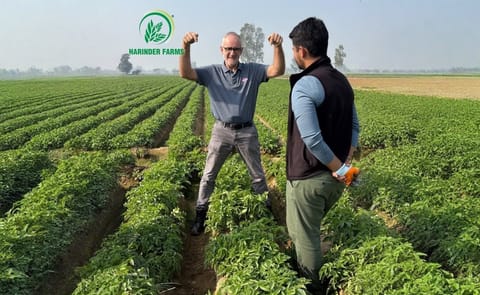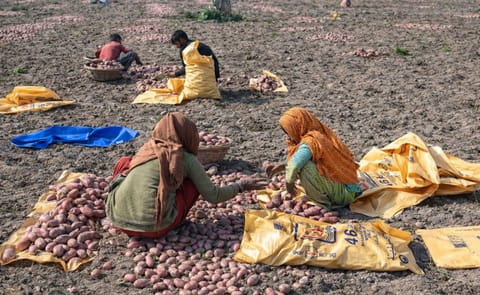A potato leaf affected by late blight (Courtesy: Sue Boyetchko, AAFC)
Research: naturally-occurring bacteria may protect potatoes against late blight

A research scientist at Agriculture and Agrifood Canada has discovered that naturally-occurring bacteria in soil may offer protection against late blight (Phytophthora Infestans).
Sue Boyetchko and her team are taking that naturally-occurring bacteria, multiplying them in a lab and applying the bacteria to potato plants and potatoes themselves.
Her team has had a 90 per cent success rate with controlling late blight both on potato plants while the potatoes are growing and also putting the bacteria on healthy, harvested potatoes to prevent the fungus from forming.

A side-by-side comparison of potato plants with late blight. The plants on the left were treated with the naturally-occurring bacteria and the ones on the right were not. (Courtesy: Sue Boyetchko).
Sue Boyetchko:
What we are trying to do is develop this into a product so that farmers or home gardeners can apply it at the right place, at the right time in order to control this disease.Boyetchko and her team with Agriculture and Agri-Food Canada are on the third year of this research project and she is now working on how to mass-produce the bacteria.
She said it will still be a few years before the product could be commercially available and they are currently looking for investors and industry input.
About $1 billion is spent every year on fungicides to control late blight around the world and crop losses due to late blight can be as high as $3-5 billion a year.










